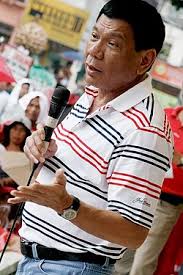
Introduction
Rodrigo Duterte, the 16th President of the Philippines, served from June 30, 2016, until June 30, 2022. His presidency is characterized by a controversial war on drugs and a distinct approach towards governance and foreign policy. Understanding Duterte’s impact is essential for grasping the current political landscape in the Philippines, as his policies and decisions continue to influence the nation.
Key Events During Duterte’s Presidency
1. **War on Drugs**: Duterte’s first and most notable action as president was to launch a nationwide anti-drug campaign. His administration’s approach led to thousands of deaths, provoking international criticism for alleged human rights abuses. Reports by various human rights organizations estimated that thousands of suspected drug offenders were killed in police operations.
2. **Focus on Infrastructure**: In response to criticisms about his human rights policies, Duterte turned his attention to economic development, implementing the “Build, Build, Build” program. This initiative aimed to improve infrastructure across the nation, fostering job creation and improving the country’s economic landscape.
3. **Shift in Foreign Relations**: Duterte’s administration marked a significant pivot in Philippine foreign policy. He strengthened ties with China, sometimes at the expense of relations with the United States. This shift was exemplified by his public declaration of a desire to pivot towards Beijing, even as concerns over China’s territorial claims in the South China Sea grew.
Post-Presidency Developments
Following his term, Duterte announced that he would accompany his daughter, Sara Duterte, in her political journey, hinting at a possible continuation of his political legacy. On the global stage, he has been a focal point due to ongoing discussions about his administration’s human rights record and its implications on Philippine democracy.
Conclusion
The significance of Rodrigo Duterte’s presidency is immense, leaving a deeply divided legacy. While some credit him with improving infrastructure and tackling long-standing issues, his controversial methods have drawn severe scrutiny both locally and internationally. As the nation moves forward, the ramifications of his policies will likely shape Philippine politics for years to come. The recent transitions in leadership reflect the continuing narrative of Duterte’s influence on Philippine governance and societal challenges, urging readers to stay informed about ongoing developments.



